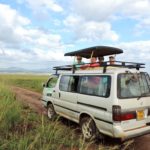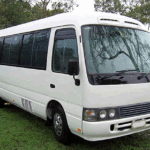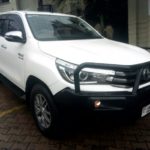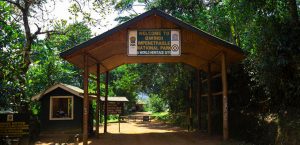Uganda‘s diverse landscapes and wildlife make it an ideal destination for self-drive adventures. From the misty mountains of Bwindi Impenetrable Forest to the sprawling savannahs of Queen Elizabeth National Park, having your own vehicle provides unmatched flexibility. However, many travelers find themselves surprised by unexpected costs that can significantly impact their budget. This guide reveals the most common hidden charges in Uganda’s car rental industry and provides practical advice on how to avoid them.

1. The Insurance Maze
The Basic Insurance Trap
Most quoted rates include only the legally required third-party insurance, which covers damage to other vehicles but provides minimal protection for your rental.
What to watch for:
- Rental companies advertising surprisingly low daily rates often provide only this minimal coverage
- Claims that “insurance is included” without specifying the type or coverage limits
- Pressure to purchase additional coverage at pickup when you’re eager to start your journey
Real cost impact: Comprehensive insurance typically adds $10-25 per day to your rental cost.
How to avoid it:
- Request detailed insurance information in writing before booking
- Ask specifically about coverage limits and deductibles
- Check if your credit card or travel insurance provides rental car coverage in Uganda
- Get quotes with all insurance options clearly itemized
2. Mileage Limitations
The “Unlimited” Mileage Myth
Some companies advertise unlimited mileage but implement restrictions in the fine print.
What to watch for:
- Daily mileage caps (e.g., 100km/day “free,” then charges per additional kilometer)
- “Unlimited within Uganda” clauses that exclude border crossings
- Surcharges for certain regions like Kidepo Valley (northern Uganda)
Real cost impact: Excess mileage charges typically range from $0.15-0.30 per kilometer, which can add hundreds of dollars to your final bill.
How to avoid it:
- Estimate your total journey distance before booking
- Get written confirmation of truly unlimited mileage if needed
- Consider higher daily rates with genuine unlimited mileage for extensive travel plans
3. Cross-Border Fees and Restrictions
The Border Crossing Surprise
Many travelers plan multi-country East African itineraries without realizing the significant fees and restrictions involved.
What to watch for:
- Additional permits required for taking rental vehicles across borders
- Insurance validity limitations outside Uganda
- Undisclosed cross-border fees added at contract signing
Real cost impact: Cross-border permits typically cost $50-150 per border crossing, plus potential additional insurance costs of $10-20 per day.
How to avoid it:
- Declare border crossing intentions during initial inquiry
- Request all cross-border fees in writing
- Consider separate rentals in each country for longer stays
- Verify insurance coverage validity in neighboring countries
4. The Fuel Policy Conundrum
The “Full-to-Empty” Scheme
While most reputable companies use a “full-to-full” fuel policy (return with a full tank), some implement variations that almost always benefit the rental company.
What to watch for:
- “Full-to-empty” policies requiring you to pay for a full tank upfront with no refund for unused fuel
- Inflated fuel prices when pre-purchasing
- Undisclosed “refueling service fees”
Real cost impact: Typically results in a 20-30% premium on fuel costs, plus payment for unused fuel.
How to avoid it:
- Request a “full-to-full” policy in writing
- Take dated photos of the fuel gauge at pickup and return
- Note nearby gas stations before returning the vehicle
- Keep fuel receipts as proof of refilling
5. Airport and Hotel Delivery Fees
The Convenience Charge
While pickup/delivery services are convenient, they often carry significant undisclosed costs.
What to watch for:
- Airport surcharges labeled as “airport taxes” or “premium location fees”
- Hotel delivery charges that vary dramatically by location
- After-hours delivery fees
Real cost impact: Airport pickups typically add $20-50, while hotel deliveries can range from $15-100 depending on location.
How to avoid it:
- Ask for all delivery fees upfront
- Consider taking a taxi to an off-airport location for pickup
- Arrange pickup during standard business hours
- Compare the total cost including delivery fees across companies
6. The One-Way Rental Premium
The Directional Dilemma
Dropping off a vehicle in a different location than where you picked it up often incurs substantial fees.
What to watch for:
- Vague terms like “additional charges may apply for one-way rentals”
- Higher one-way fees for less-traveled routes (e.g., dropping in Kidepo or Kisoro)
- Last-minute disclosure of one-way fees
Real cost impact: One-way fees typically range from $50-200 depending on distance and vehicle type.
How to avoid it:
- Request specific one-way charges in writing before booking
- Consider a loop itinerary instead of one-way travel
- Compare the one-way fee against the cost of returning the car plus alternative transportation
7. Additional Driver Fees
The Multiple Driver Markup
Having multiple drivers is safer for long journeys but often incurs per-driver charges.
What to watch for:
- Per-day charges for each additional driver
- Requirements for additional drivers to be present at pickup
- Undisclosed fees appearing on final bill
Real cost impact: Additional driver fees typically range from $5-15 per day per extra driver.
How to avoid it:
- Ask about additional driver policies and fees upfront
- Negotiate inclusion of one additional driver at no cost
- Consider whether multiple drivers are necessary for your journey
8. The Late Return Penalty
The Tardy Traveler Tax
Returning a vehicle later than the specified time can trigger disproportionate charges.
What to watch for:
- Charging a full additional day for returns even minutes past the deadline
- Unclear grace periods
- Inflexible policies around flight delays or travel disruptions
Real cost impact: Late returns often trigger a full additional day charge, potentially plus penalty fees of $20-50.
How to avoid it:
- Build buffer time into your return schedule
- Understand the company’s grace period policy
- Communicate proactively if delays are anticipated
- Document any circumstances beyond your control
9. Vehicle Upgrade Pressures
The Arrival Upsell
A common tactic is to claim your reserved vehicle category is unavailable, necessitating a “discounted” upgrade.
What to watch for:
- Claims that your reserved vehicle is “unavailable” or “unsafe” for your itinerary
- High-pressure sales tactics about road conditions requiring better vehicles
- Last-minute upgrade offers that seem urgently necessary
Real cost impact: Upgrades typically add $15-50 per day to your rental cost.
How to avoid it:
- Research appropriate vehicle types before booking
- Get written confirmation of your specific vehicle category
- Stand firm on your reservation if the originally booked vehicle type suits your needs
- Book with reputable companies with adequate fleet sizes
10. Excessive Damage Claims
The Return Inspection Surprise
Some operators are notorious for claiming damage that either existed previously or is normal wear and tear.
What to watch for:
- Rushed or cursory vehicle inspection processes at pickup
- Unclear damage identification on rental agreements
- Return inspections conducted without your presence
Real cost impact: Damage claims can range from minor ($50-100) to substantial ($500+) depending on alleged damage.
How to avoid it:
- Take dated, detailed photos/videos of the entire vehicle at pickup and return
- Ensure all existing damage is documented on the rental agreement
- Insist on being present during the return inspection
- Use your smartphone to timestamp vehicle condition photos
11. Local Tax and Fee Surprises
The Paperwork Additions
Various government taxes, local fees, and administrative charges often appear only in the final bill.
What to watch for:
- VAT (Value Added Tax) not included in quoted rates
- “Administrative fees” or “processing charges”
- “Tourism development levies” or similar creative terms
Real cost impact: These fees typically add 18-25% to your quoted rate.
How to avoid it:
- Request quotes with “all-inclusive” or “final price” figures
- Ask specifically if the rate includes all taxes and fees
- Get itemized cost breakdowns before booking
12. Equipment Rental Add-ons
The Essential Extras
Safari travel often requires additional equipment that may carry significant rental fees.
What to watch for:
- GPS rental fees ($5-10 per day)
- Roof rack charges ($5-15 per day)
- Mobile WiFi device rentals ($5-10 per day)
- Camping equipment fees
- Child seat rental costs ($3-8 per day)
Real cost impact: Equipment add-ons can easily add $20-50 per day to your rental cost.
How to avoid it:
- Determine necessary equipment in advance
- Compare included equipment across rental companies
- Negotiate inclusion of essential items in your base rate
- Consider purchasing inexpensive items locally for longer rentals
Conclusion: How to Protect Yourself
Before Booking:
- Request detailed, all-inclusive written quotes from multiple companies
- Specifically ask about each potential hidden fee mentioned above
- Read reviews focused on final billing experiences
- Choose companies with transparent pricing policies even if base rates appear slightly higher
At Pickup:
- Review the contract thoroughly before signing
- Take comprehensive vehicle photos/videos with timestamps
- Get staff to sign off on existing damage
- Clarify return procedures and requirements
During Rental:
- Keep all receipts, especially for fuel
- Document any issues that arise immediately
- Get written authorization for any necessary repairs
At Return:
- Schedule enough time for a proper inspection
- Take post-rental photos/videos
- Request a signed final inspection report
- Don’t pay any damage claims without clear evidence
By understanding these potential hidden costs and taking preventative measures, you can enjoy Uganda’s magnificent landscapes without budget-destroying surprises when you return your rental vehicle. You can rent a car in Uganda with a driver or self-drive by simply contacting us via info@ugandacarrentalservices.com or call+256-700135510 to speak with our team.










Related Articles
Top 11 Must-Try Street Foods in Uganda: A Culinary Adventure
Self-Drive to Bwindi National Park: A Comprehensive Guide
Essential Maintenance Practices For Self Drive In Uganda